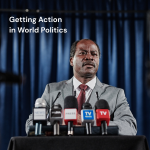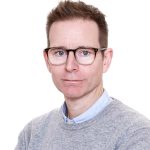- Home
- Getting Action in World Politics
Getting Action in World Politics

Event Date: September 23, 2025 - 11:30am to 1:00pm
Location: FSS 5028, 120 University Private, University of Ottawa
Presented by CIPS and the International Political Economy Network (IPEN)
In Getting Action in World Politics, Seabrooke details how action in world politics centers around forms of getting noticed (projection), knowing how to play the game (interaction), and defending status and resources (protection). Seabrooke links micro-level behavior to macro-level institutions in world politics. Projection includes finding ways to mobilize attention and voice. Interaction is concerned with knowing how to read the room and conform or challenge. Protection centers on tipping the scales in a particular direction while also searching for potential threats. These actions are conditioned by different social spaces that can be analyzed as fields, networks, or ecologies. Drawing on two decades of research, Seabrooke shows how actors get action across a range of examples: from environmental standards to economic policy training networks to asylum consultancies and many others. In a period of transition from an international rule-based to deals-based order, understanding how actors make and take positions is crucial.
Speaker:
 Leonard Seabrooke is Professor of International Political Economy and Economic Sociology in the Department of Organization at the Copenhagen Business School, and Research Professor at the Norwegian Institute of International Affairs. His research currently focuses on transnational professionals, international organizations, activist movements, and consultancy communities on a range of politico-economic issues.
Leonard Seabrooke is Professor of International Political Economy and Economic Sociology in the Department of Organization at the Copenhagen Business School, and Research Professor at the Norwegian Institute of International Affairs. His research currently focuses on transnational professionals, international organizations, activist movements, and consultancy communities on a range of politico-economic issues.
Chair:
 Jacqueline Best is a Full Professor in the School of Political Studies at the University of Ottawa. Her research is at the intersection of international relations, political economy and social theory. Her current research examines the role of exceptionalism, failure, and ignorance in economic policy, tracing their evolution from the early days of neoliberalism to today.
Jacqueline Best is a Full Professor in the School of Political Studies at the University of Ottawa. Her research is at the intersection of international relations, political economy and social theory. Her current research examines the role of exceptionalism, failure, and ignorance in economic policy, tracing their evolution from the early days of neoliberalism to today.
Social Sciences Building
Subscribe to the CIPS Newsletter
No spam, only authentic content.



